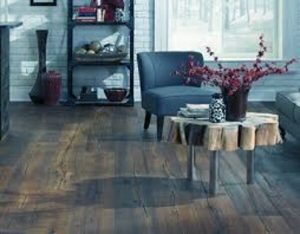Ideal Flooring Solution for Industries: A Comprehensive Guide


In industrial environments, selecting the right ideal flooring ensures safety, durability, and efficiency. Industries have unique requirements, including withstanding heavy loads, chemical resistance, ease of maintenance, and slip resistance. With a wide array of flooring options available in the market, decision-makers must carefully evaluate each opportunity to determine the best fit for their needs. This article will explore various flooring materials commonly used in industries, weighing their pros and cons to help you make an informed decision and create a safe and productive workspace.
Concrete Flooring
Concrete flooring is famous in industrial settings for its exceptional durability and load-bearing capabilities. It can withstand heavy equipment, vehicle traffic, and high impact without significant damage. Concrete floors are also chemical resistant, making them suitable for industries dealing with corrosive substances. However, definite alone may lack adequate slip resistance, requiring additional treatments, such as coatings or textures, to enhance safety. Moreover, while concrete is durable, it can be prone to cracking if not properly maintained, impacting the workspace’s aesthetic appeal.
Epoxy Flooring
Epoxy flooring is a versatile and cost-effective option for industries. It consists of multiple layers of epoxy resin applied to a concrete floor, providing a smooth, seamless, and highly durable surface. Epoxy flooring offers excellent resistance to chemicals, oils, and abrasion, ensuring longevity in challenging environments. Additionally, it can be customized with various colours, patterns, and textures to meet specific aesthetic preferences. Epoxy floors enhance slip resistance when additives such as quartz or anti-slip aggregates are incorporated. However, extreme temperatures and direct sunlight exposure can cause the epoxy to fade or discolour over time, requiring periodic maintenance.
Rubber Flooring
Rubber flooring is renown for its exceptional resilience and shock-absorbing properties, making it an ideal choice for industries where worker comfort and safety are paramount. It provides a cushioned surface that reduces fatigue and minimizes the risk of injuries from slips, trips and falls. Rubber flooring is resistant to impact, chemicals, and most oils, making it suitable for heavy-duty environments. Additionally, it offers excellent acoustic insulation, reducing noise levels in busy industrial settings. However, rubber flooring can be susceptible to staining and requires regular cleaning and maintenance to preserve its appearance and performance.
PVC Flooring
PVC (polyvinyl chloride) flooring, commonly known as vinyl flooring, is widely used in industries due to its affordability, durability, and versatility. It offers excellent resistance to chemicals, oils, and moisture, making it suitable for various industrial applications. PVC flooring is easy to clean and maintain, requiring minimal effort to keep it pristine. It is available in multiple colours, patterns, and textures, allowing industries to customize their workspace according to their branding or functional requirements. However, PVC flooring may not withstand heavy loads or other options and can be susceptible to damage from sharp objects or severe impacts.
Conclusion
Selecting the best ideal flooring solution for industries requires carefully evaluating the specific requirements and priorities. Concrete, epoxy, rubber, and PVC flooring offer distinct advantages and considerations. Ultimately, the decision should prioritize durability, load-bearing capacity, chemical resistance, slip resistance, maintenance requirements, and aesthetic appeal. Consulting with flooring professionals and considering industry-specific regulations and safety standards will help ensure the chosen flooring solution meets all the necessary criteria. By investing in the appropriate flooring, industries can create a safe, efficient, and visually appealing workspace that withstands the demands of their operations.
